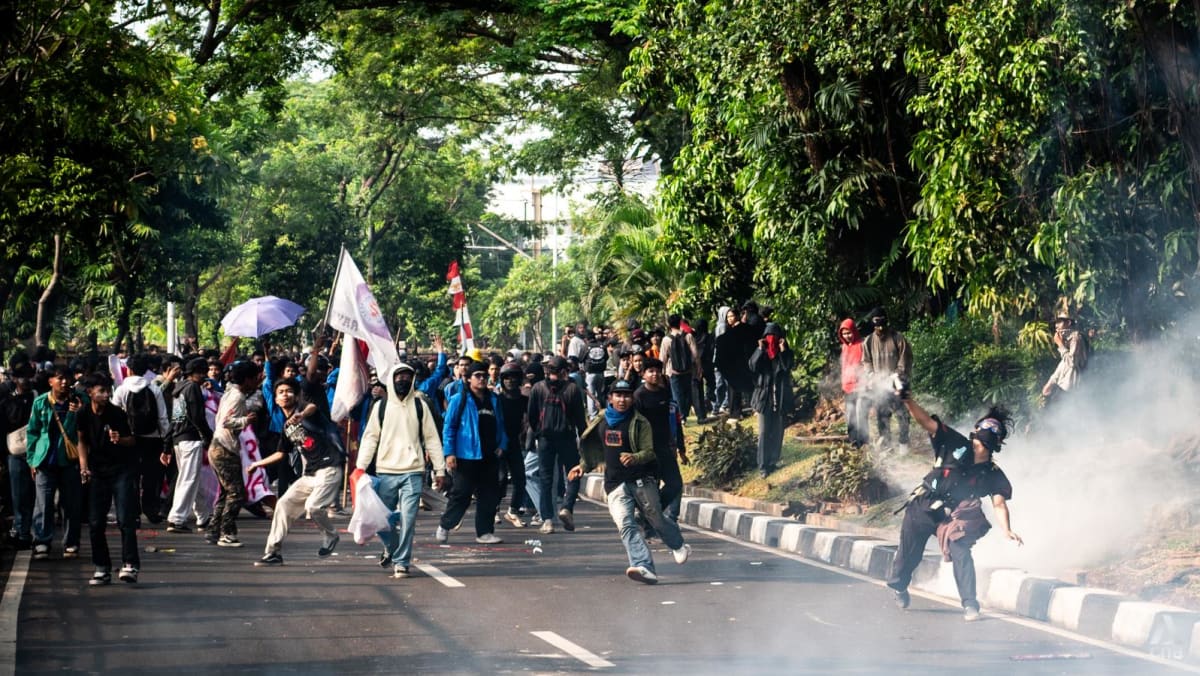Critics argue the 50 million rupiah monthly stipend is excessive.
A property analyst told Detik news portal on Aug 21 that the amount is equivalent to renting a luxury 700sqm home complete with marble floors, a pool and a garage for four cars in Jakarta’s most exclusive areas.
Media Wahyudi Askar, an economist from the think tank Center for Economic and Legal Studies (CELIOS), called the move “irrational”, arguing the funds would be better spent on economic stimulus or preventing local tax hikes.
“Furthermore, allowances should be tied to measurable performance such as attendance, legislation quality, and more oversight of the government,” he told CNA.
Achmad Nur Hidayat, an economics and public policy lecturer from National Development University said it is time for Indonesia’s parliament to merge its fragmented pay structure and cap allowances for items like housing and vehicles.
“Limit them with realistic ceilings based on reimbursement and proof of spending,” he said. “The 50 million rupiah monthly housing plan should be tested for urgency and efficiency before going ahead.”
WILL HOUSING ALLOWANCE GO AHEAD?
The controversy comes just days after Prabowo, in his State of the Nation address, pledged further austerity to finance his government’s ambitious programmes.
He said that 2025 budget cuts had saved 300 trillion rupiah, which helped fund his many ambitious programmes such as the free-meal initiative, which alone costs taxpayers 335 trillion rupiah every year.
The Finance Ministry predicted the free-meal initiative, along with other programmes such as free health checks and free boarding school enrolment for children from poor families, would cause a government deficit of around US$40 billion, or 2.7 per cent of the country’s gross domestic product by the end of 2025.
Prabowo said his austerity measures would close the budget deficit to around 2.48 per cent of the GDP next year.
“My hope is to one day, be it 2027 or 2028, I stand before this plenary to say that we have managed to have a state budget without a deficit,” Prabowo told parliament on Aug 15.
Analysts suggested the increase in MPs’ allowance could reflect Prabowo’s need for political and parliamentary support for his programmes.
“Parliament was given privileges in the form of higher allowances (possibly because) Prabowo doesn’t want his programmes vetoed or politically disrupted,” Kunto Adi Wibowo, a political observer from Padjadjaran University, told CNA.
Although Prabowo has in the past rolled back unpopular policies such as a proposed value added tax (VAT) hike or limits on subsidised cooking gas, experts said it could be different this time.
“Because the government also wants (parliament’s) support for its policies, it will be difficult for Prabowo to cancel this allowance hike,” Hendri Satrio of Paramadina University told CNA.
“But the people have voiced their objections. That’s important, because it will force Prabowo to be more careful in the future about raising MPs’ benefits without real parliamentary work that benefits the public.”
